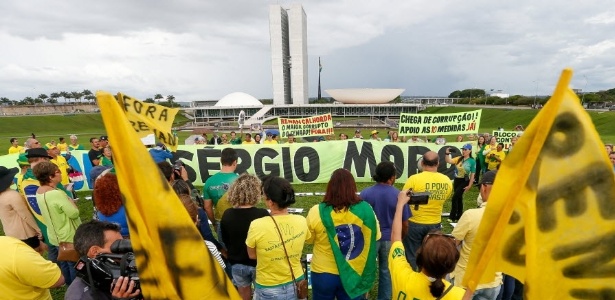In recent years, the core principles of democracy have been seriously shaken in their foundations and are constantly under attack, struggling to prove their relevance at the dawn of the 21st century.
Mario Vargas Llosa, a hardened liberal who was introduced to Marxism in his youth, argued that the frivolity of politics was one of the symptoms of a greater evil that afflicted modern society.
What big evil is Vargas Llosa dealing with?
Disbelief in the effectiveness of public and private leaders who are unable to find solutions to the problems of democracy.
Strengthening the ideologists of ethereal causes, propagandists of divisive and old theses.
The collapse of the international scenario, which resumes the nationalism that prevailed in the 19th century, which impedes cooperation as an instrument of world development.
This greater evil has affected in the same way the realm of military power in the great democracies.
Older theoretical formulations, such as those of Samuel Huntington (“SOLDIER AND THE STATE”) or Alfred Stepan (“THE MILITARY IN POLITICS”, a title borrowed for this article), which dealt with civilian control of the armed forces, have also cracked in their basis. academic foundations.
The American democratic tradition of mutual respect between civilians and the military, with the independence of the positions of these social bodies, has strengthened over the years, becoming a standard in the Western world.
A recent example of this institutional strength comes from General Mark Milley (Chief of the General Staff of the US Armed Forces), who played a critical role in containing a popular uprising when the Capitol was taken over by supporters of former President Donald Trump.
However, even in “America” there is growing instability in relations between civilians and the military.
On December 17, 2021, The Washington Post published an op-ed by three retired generals expressing their concern about the bloody conflict, including with the Armed Forces as one of the contenders, in the upcoming 2024 presidential election.
Here in Brazil, the participation of the armed forces in political rantings dates back to the 19th century. During the 20th century they were called to act, with success or failure, at 22, 24, 30, 35, 37, 45, 54, 55, 61, 63 , 64.
In 1985, after a period of military governments, an alignment emerged in the Armed Forces that closed in bowls and sought to professionalize its cadres as a way to prevent politics in the barracks.
In the 2010s, a political scenario shocked the social environment, bringing millions of people to the streets in protest.
These movements have their origin in political, legal and moral deviations, uncovered in countless cases by the professional press.
Part of the population, faced with a discrepancy between what they believed and what was practiced in the national manuals, again thought about the participation of the Armed Forces directly in the political arena.
Renaissance of the 20th century.
It was the so-called “constitutional military intervention”.
Although the military was alleged to have been directly involved in the course of events, they remained committed to constitutional precepts and, even at the urging of moldy vivans camped outside the barracks, did not take on the mission of defiance of the rule of law.
The few actions that were carried out on the political field by the Armed Forces were aimed only at satisfying the slogan of legality, legitimacy and stability, used as a vaccine against the radicalization of ideas.
Changes in the political scenario were made, as befits a democratically mature country, by the desire of the voters, revealed in the elections in 2018.
The winning government sought support from military cadres to fill areas of federal administration that it said needed an ideological reorientation.
Unfortunately, little by little, a perception of a symbiosis between the government and the armed forces has formed in the public mind, thanks to the large number of military personnel in positions previously held by civilians, as well as statements by the incumbent president that strengthen the emotional connection.
We come into 2022, three months before the elections, with the daily feeling that relations between the powers are on the verge of breaking.
To the necessary balance between the three forces, the theory accepted since the 18th century, one more ingredient would need to be added today to avoid the collapse of institutionalism: the serenity of motivation of leaders with a genuine detachment from position.
Although recent movements in the political arena are not about seeking calm, the Armed Forces, sometimes called upon to moderate major matters (without understanding the wording), cannot fall into the trap of becoming involved in these disputes.
The history of the 20th century shows how fate can be an executioner with a military establishment in these situations.
Experience has shown that it is difficult for the armed forces to take on the role of vanguard of non-institutional groups and then remain on the sidelines when the political goals of those who promoted them have been achieved.
I trust our military leaders.
They keep the hardships they went through.
They know how difficult it was to restore the public’s trust.
They learned that the siren’s mesmerizing song does not bring good luck.
They would not embark on a gamble that might stain their respected uniforms.
It would be a sad surprise if a movement in this direction were started and received support. institutional military.
This would contribute to the bloody split of society and the fratricidal separation of men and women in military uniform.
I do not believe in such a possibility.
In the last election round, the vote decided the political fate of the country with an ideological shift.
In the next round, only voting will once again decide the fate of Brazilian society.
Peace and goodness!
















